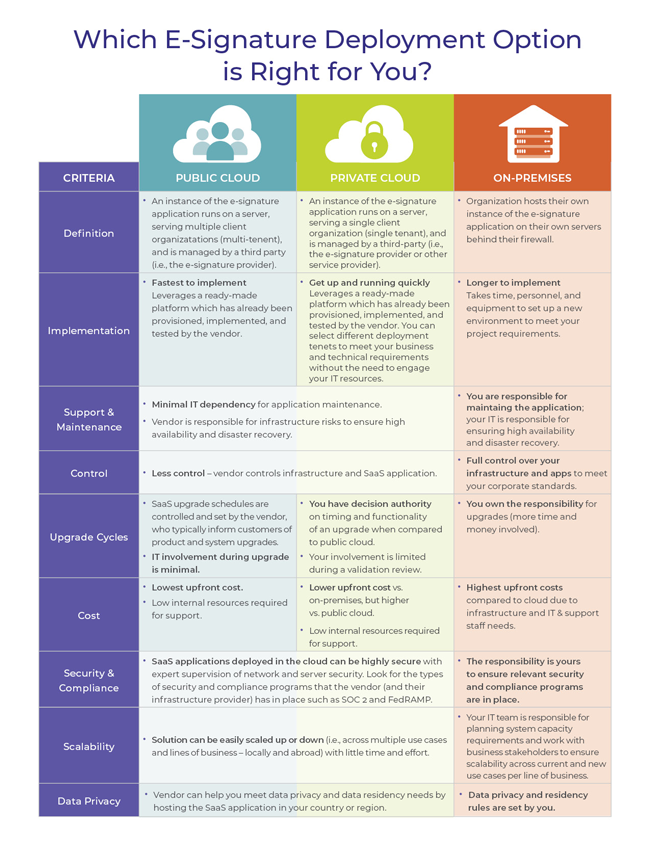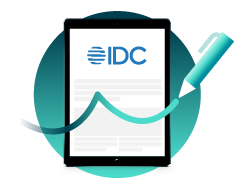Which E-Signature Deployment Option is Right For You?

Deciding whether to implement electronic signature software in the cloud or on-premises is a tough decision faced by small businesses, enterprises, and government organizations alike. For IT decision makers, balancing data security, total cost of ownership (TCO), ease of implementation, and customization capabilities are just some of the criteria they need to consider when choosing the correct deployment option for their e-signature solution to sign documents in their organization.
According to Gartner, "the shift to the cloud has only accelerated over the past two years due to COVID-19, as organizations responded to a new business and social dynamic." Analysts predict that 51% of IT budgets will go to cloud-based systems development and operations by 2025, making cloud computing one of the most disruptive forces of IT spending since the early days of the digital age. Organizations realize the many benefits cloud computing and cloud storage have to offer, such as reduced total cost of ownership (TCO), multitenancy options, and its scalability of workflows .
Organizations in highly regulated industries, such as financial services and government, however have traditionally shied away from cloud technology in more than just their signing processes. They’ve put their trust in deploying apps on-premises, because they want more control over their infrastructure and data versus relying on third party vendors. But this is changing in a big way. Within the government sector, for example, there has been a spike in the proportion of agencies that have moved to the cloud due to new "cloud-first" policies and the availability of government-wide programs, such as FedRAMP.
As your organization evaluates cloud and on-premises deployment options in the context of e-signature software, there are a number of things to consider. It’s important for organizations to carefully analyze the advantages and challenges of the various esign deployment methods available in the market:
The decision is often a difficult one, there’s really no right or wrong answer. The deployment option you choose for your electronic signature solution should be based on your organization’s business needs, IT expertise and infrastructure. What’s important to remember is that you choose an e-signature partner that can scale with your organization – today and tomorrow.
OneSpan Sign Offers Flexible Deployment Options for Document Signing
While most e-signature vendors only offer a one-size-fits-all deployment approach, OneSpan has been recognized by Forrester as "the strongest vendor with both an on-premises and a cloud offering." Unique to the e-signature market, OneSpan not only offers public cloud, private cloud and on-premises deployment options, but also offers the exact same product, the same code base and the same user experience without compromising on security or functionality.
Whether you deploy your application in the cloud or on-premises, OneSpan is with you every step of the way with a flexible deployment architecture. Our single e-signature platform means that you can start developing using a common REST API and fully supported SDKs and deploy OneSpan Sign however and wherever you want. And if your needs change over time, we are the only e-signature provider to give you the flexibility you need to quickly migrate from one deployment to the other.





